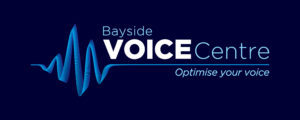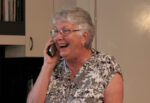A declining or weak voice can be a common barrier to social and community communication in the Senior citizens of our community. Unfortunately, many of the processes and diseases associated with aging can affect the strength and sound of the voice, with between 20 and 29% of people over 64 estimated to have a voice disorder (Cook, 2010). With Australia’s aging population, this is obviously a problem that requires a specific solution.
The Speak Out program for Parkinson’s sufferers is designed to address this issue. This program was developed for people with Parkinson’s Disease and can be an important strategy for continued social and community involvement.

The Effects of Parkinson’s Disease on the Voice
Parkinson’s is a progressive disorder of the nervous system that occurs when nerve cells in the brain start to break down or die. This causes low levels of a chemical messenger called dopamine. The lack of dopamine causes abnormal brain activity, which manifests as impaired movement.
Parkinson’s Disease causes tremors and affects movement throughout the body. It can also affect the voice, with around 90% of people with Parkinson’s at risk of developing a weak voice as well as swallowing and speech difficulties. These voice changes can result in reduced voice volume, monotone quality and breathiness. There are thought to be several reasons for these changes including:
1. Poor Muscle Activation
Parkinson’s Disease causes widespread problems with muscle activation, including in the muscles involved with speech. These problems can result in impairments in the respiratory system and larynx. This can cause:
- Reduced breath support for the voice
- Reduced vocal volume
- Problems with articulation
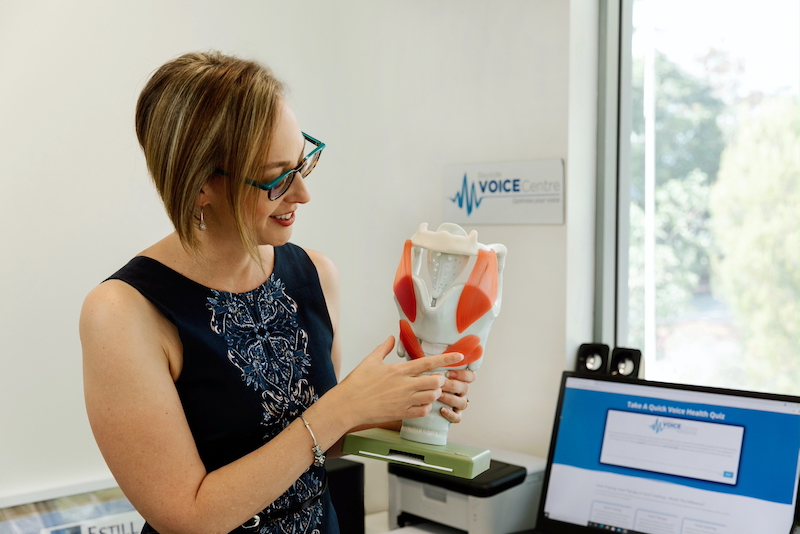
2. Sensory Changes
People with Parkinson’s may also undergo sensory changes that affect how they experience their own voice. This means that they may not always be aware that their voice is softer and harder to hear because they experience it differently.
3. Cueing Problems
People with Parkinson’s may also experience difficulty ‘cueing’. So, even if they’re told by others to speak louder, they may not be able to follow these instructions because of internal barriers.
Call Now To Make An Appointment
Jenny is a Certified Practising Speech Pathologist, in Brisbane, with a special interest in voice.
SPEAK OUT Therapy for Parkinson’s Disease
The SPEAK OUT Parkinson’s training was designed specifically for people with Parkinson’s disease who have a weak voice leading to communication and swallowing problems.
SPEAK OUT therapy for Parkinson’s patients involves individual speech therapy sessions with a speech pathologist. It focuses on turning speech from something that clients do automatically into an intentional process. It does this with motor learning.
Most people use the extrapyramidal system of the brain to speak. These are motor neurons that are responsible for involuntary functions like movement, reflexes, and locomotion. Unfortunately, Parkinson’s can severely impact this system, resulting in tremors and reduced motor function.
The SPEAK OUT program for Parkinson’s patients involves exercises that use the pyramidal system of the brain. This system is made up of motor neurons that are responsible for voluntary movements. Using this system makes speaking an intentional act instead of automatic and can improve voice:
- Clarity
- Fluency
- Volume
- Intonation
- Quality
SPEAK OUT for Parkinson’s patients isn’t just about being loud, although that’s a part of it. It’s about learning to walk, pick up things, and speak with intent, rather than automatically.
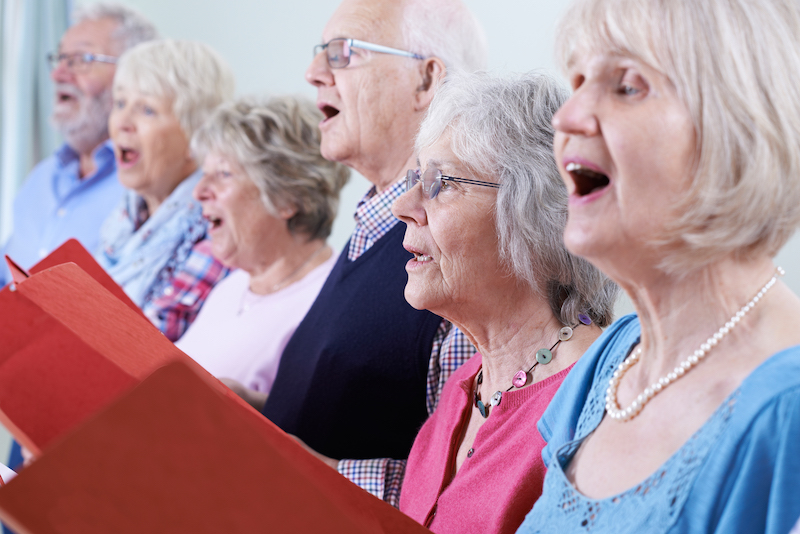
Who is SPEAK OUT for?
SPEAK OUT Parkinson’s training is useful for Parkinson’s disease as well as conditions like:
- Essential tremor
- Progressive Supranuclear Palsy
- Cortico-basal degeneration
- Lewy Body Dementia
- Multiple System Atrophy
Before enrolling in SPEAK OUT sessions, potential clients must complete an assessment session. During that session they must be able to complete exercises, follow commands, and show improvement using intentional speech practices in two or more of the following:
- Breath support
- Volume
- Vocal quality
- Articulation
- Intonation
Call Now To Make An Appointment
Jenny is a Certified Practising Speech Pathologist, in Brisbane, with a special interest in voice.
Details on the SPEAK OUT Program for Parkinson’s
SPEAK OUT therapy for Parkinsons’s sufferers is highly individualised and ongoing. People who enrol in the program and their families or carers must be completely committed to the sessions and to daily practice. SPEAK OUT training includes:
Individual Sessions
People with Parkinson’s must attend 12 individual sessions with a speech pathologist to start with. The sessions last around 40 minutes and are run 3 times a week over 4 weeks.
Video Recording
The sessions are video recorded to improve clients’ awareness of what’s happening to their voice, as they often blame any problems on the hearing of the people around them.
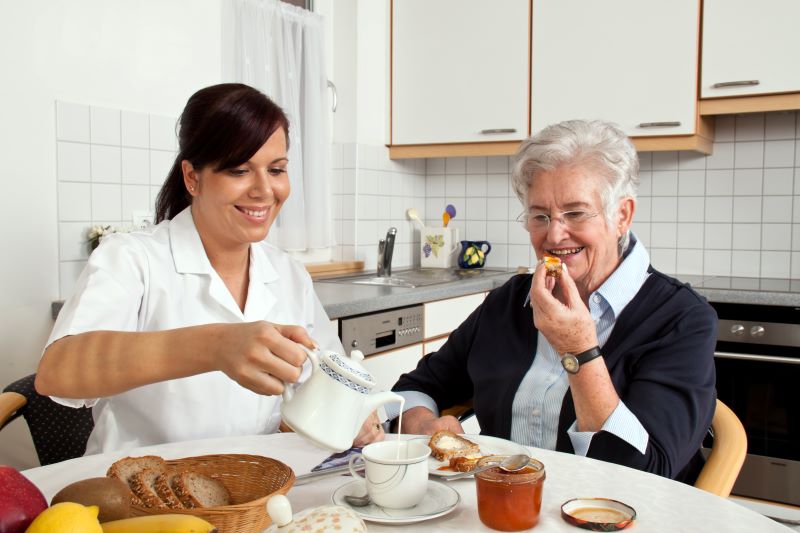
Ongoing Maintenance
Parkinson’s Disease is a progressive condition that has no cure at this stage. So, people with this condition must work to maintain the improvements they make in the initial 12 speech therapy sessions.
The best way to do this maintenance is through the LOUD crowd. This group is part of the SPEAK OUT program for Parkinson’s patients. It was formed to help people who have been through SPEAK OUT training to revise their learning, maintain their gains, and form social connections. This has the added benefit of providing accountability and peer encouragement, which can improve motivation.
The Takeaway
People with Parkinson’s Disease often struggle with social and community interactions, ending up isolated. This can have serious negative effects on their health and wellbeing, adding to any health conditions they already experience.
A weakened voice is one common cause of this kind of isolation. That’s why it’s so important that people with Parkinson’s find therapies and solutions that can help support the voice and allow them to connect with other people who have the same issues.
The SPEAK OUT program for Parkinson’s patients can have a very positive impact on the voice strength and clarity in people with Parkinson’s Disease. Talk to a SPEAK OUT Certified Practising Speech Pathologist to learn more about this program and how it can help today.
